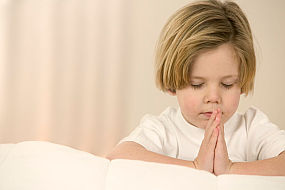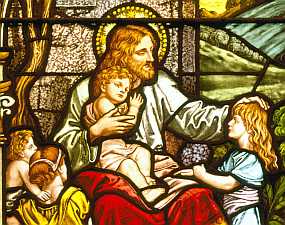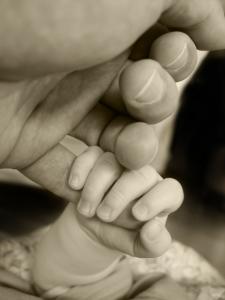You can’t be a Christian very long before you must come to grips with the meaning of faith. And in America that faith will come down to either a naïve faith or a mature one.
Maturity, at least if the brochures are right, is the true hallmark of Christian enlightenment. It’s easy to spot someone with a mature faith. They have that knowing, philosophical smile whenever they spot some brand spankin’ new believer anxious to be about God’s work, that person with a naïve faith that hasn’t been around the block a time or two.
The person with a mature faith understands that very few people ever see real results in prayer. That mature person knows that it’s one thing to believe something and altogether a different thing to make it happen. Supplementing one’s wishes with a little elbow grease never hurt anyone. The mature person of faith knows that backup plans are needed when idealism falls through. Sure, God is ready to say yes to the faithful, but it’s smart to hedge one’s bets against failure.
When Joe Sixpack loses his job during the recession, the counselor with the mature faith readily advises Joe to immediately find another job, any job. “God can’t drive a parked car,” the counselor says—with a wink. Because there’s always a wink or a reassuring pat on the back when mature faith is involved.
No, the American Christian of mature faith comprehends what the person with the naïve faith doesn’t. And his church makes him an elder or a committee supervisor for his discernment. Because we need his common sense wisdom and leadership. We don’t want to make the mistakes of blindly following some starry-eyed dreamer with a naïve faith who wants to change the world for Christ.
So we hold up the person of mature faith. He’s the model. And his common sense faith is an example for us all.
Except, as I see it, that mature “faith” isn’t really faith at all.
The Lord makes it clear:
At that time the disciples came to Jesus, saying, “Who is the greatest in the kingdom of heaven?” And calling to him a child, he put him in the midst of them and said, “Truly, I say to you, unless you turn and become like children, you will never enter the kingdom of heaven….”
—Matthew 18:1-3
You see, it’s the person with the naïve faith, the one who believes there stands no impediment to the God of the Universe, who is the real warrior in the Kingdom of Heaven. This is the one who believes that nothing is impossible with God. This is the person who takes God’s word at…well, His word. This is the one who sends the devil scurrying back to hell.
I’d like to find a real Christian today who believes the following:
Unless the LORD builds the house, those who build it labor in vain. Unless the LORD watches over the city, the watchman stays awake in vain.
—Psalms 127:1
Instead, we of “mature” faith like to force God’s hand. When we feel we’ve waited long enough, we build the house, we watch over the city. Because faith in God is nice, but if you’re going to build houses and protect cities, nothing beats the sweat of the brow.  So leave the waiting in the prayer closet to the naïve, and let’s get the real men out there to do the job pronto. And for all our sakes, make sure we have a Plan B.
So leave the waiting in the prayer closet to the naïve, and let’s get the real men out there to do the job pronto. And for all our sakes, make sure we have a Plan B.
This is what passes for maturity today.
No, man’s common sense is just that, common. It takes a real naïf, a true fool, to think otherwise, to see with uncommon vision, to have God’s perspective.
Frankly, I’m a bit sick of all the people with supposedly mature faith who sit around saying, “Yes, but….” Those “buts” have a knack for getting in the way, stymieing the work of the Lord. Whenever those mature people bless us with their smarts, you can almost hear someone muttering along with them: “Isn’t that just Jesus, the carpenter’s son?”
You’ve got poor, uneducated nobodies in India leading thousands to Christ, laying their hands on the sick and watching them get healed. Meanwhile, you’ve got hyper-rationalists masquerading as the mature people in the church who raise their objections and quote from their science and philosophy books all the reasons why none of that can be happening.
Me? I’ll stick with Isaiah on this one:
…and a little child shall lead them.
—Isaiah 11:6b

 When I left my son at 9:30 PM, he had
When I left my son at 9:30 PM, he had  He entered that vicious vomit cycle of losing so much water from his system that adding it only made him more nauseous. In the end, nothing could stay down. He awoke Friday morning looking like one of those hollow-eyed waifs you see in ads for Third World children’s charities.
He entered that vicious vomit cycle of losing so much water from his system that adding it only made him more nauseous. In the end, nothing could stay down. He awoke Friday morning looking like one of those hollow-eyed waifs you see in ads for Third World children’s charities.